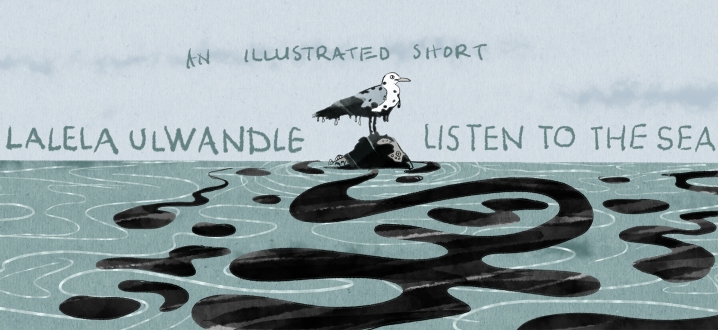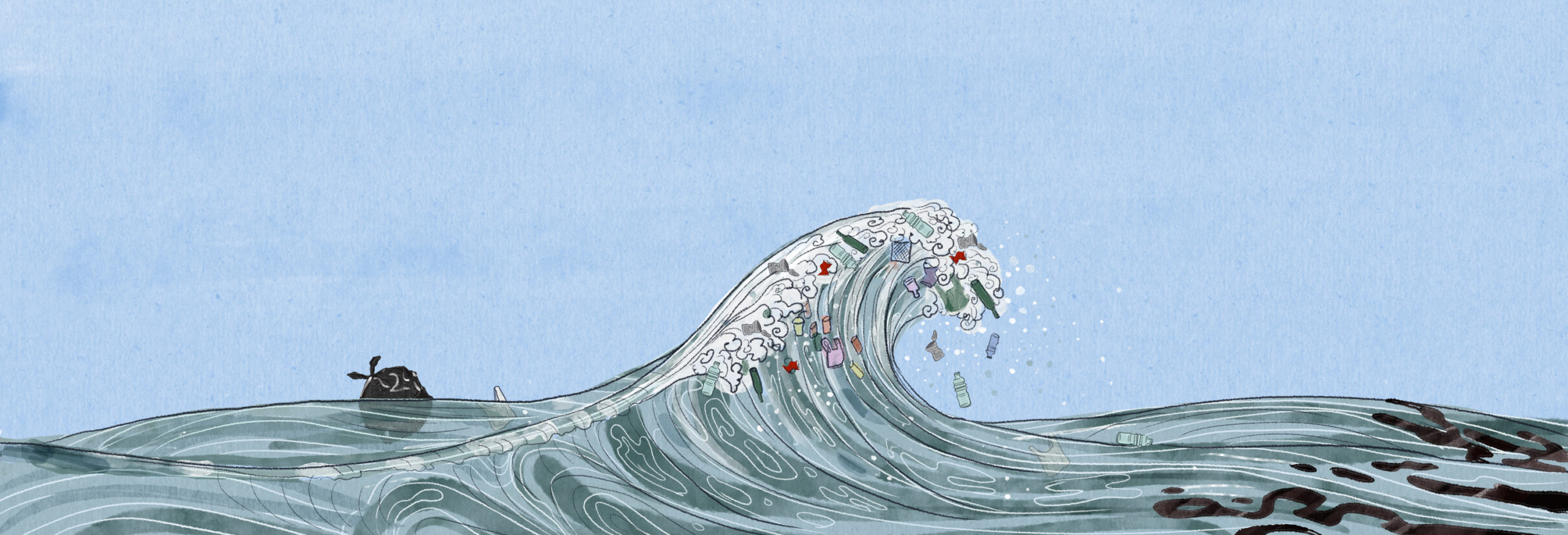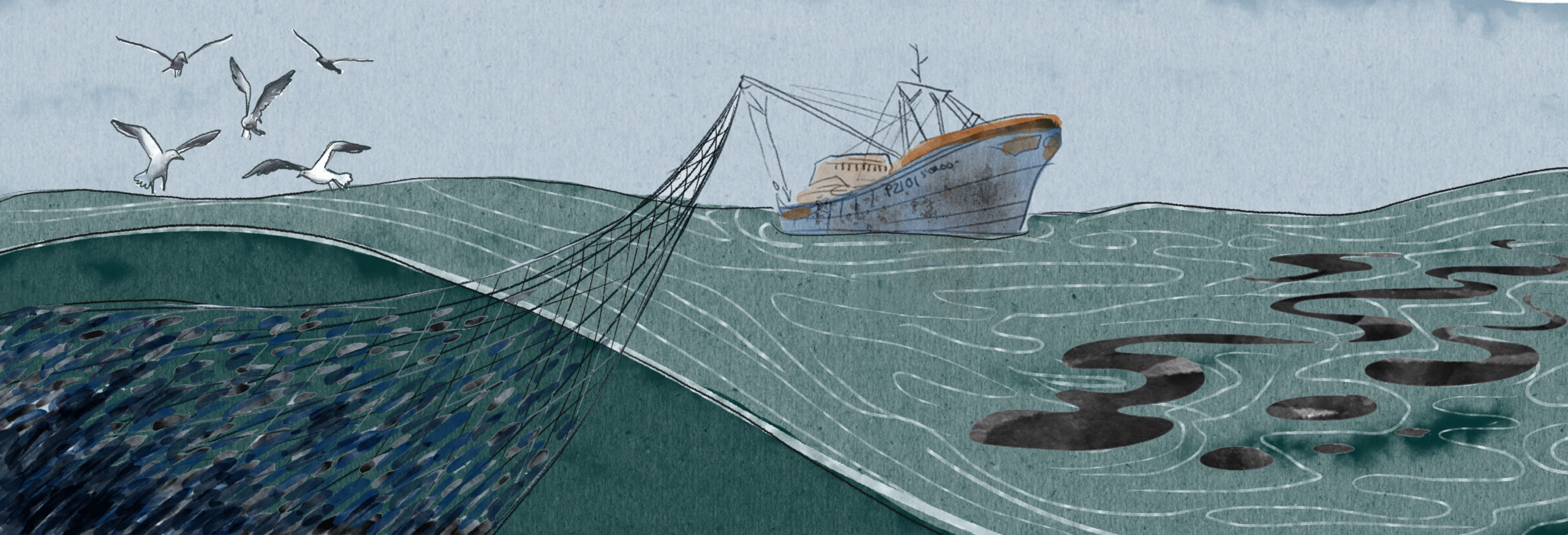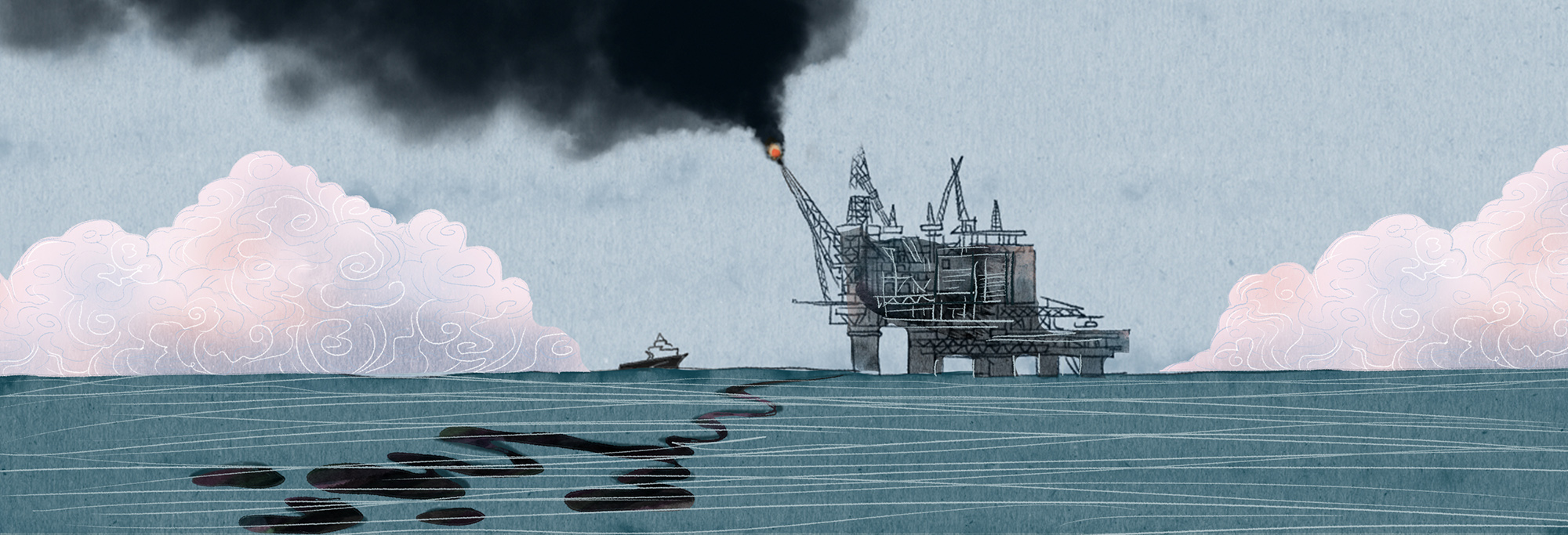OUR BURNING PLANET
The true custodians of our seas: Who is stealing South Africa’s ocean heritage?

Over the past two years, a collective of researchers, civil society partners and small-scale fisher leaders, under the banner of the Coastal Justice Network, have been researching historical and contemporary experiences of dispossession and exclusion of coastal communities from their customary territories, and from ocean governance.
This past week, a new short film from the Empatheatre Collective was released as part of the Green Connection’s Oceans Tribunal held on 21 and 22 September.
The Oceans Tribunal is part of their “Who Stole Our Oceans?” campaign, and was an opportunity for small-scale fishers and others with oceanic socio-cultural connections to present to a jury panel their concerns around oil and gas exploration in our oceans, and what this will mean for their livelihoods, environment, culture and sacred relationships with the ocean.
These testimonies will be compiled into a report for the president, and will articulate the deep and diverse concerns South Africans have about the threats facing the ocean.
The Lalela Ulwandle animated film depicts some of the ways in which South African citizens have had their ocean heritage stolen from them through the forces of colonialism, apartheid, extractive capitalism and natural resource enclosures.
The film is the latest iteration of Empatheatre’s ocean heritage research that exists as a theatre production, an online radio play and now a short animated film. This project (funded by the One Ocean Hub) is a research-based public storytelling project that makes visible stories of living with the ocean that are seldom seen or heard in the public domain.
Over the past two years, a collective of researchers, civil society partners and small-scale fisher leaders, under the banner of the Coastal Justice Network, have been researching historical and contemporary experiences of dispossession and exclusion of coastal communities from their customary territories, and from ocean governance.
The Empatheatre team has woven together the stories, histories and contemporary concerns emerging from this co-engaged research, into a gripping narrative. In each iteration we have been able to explore themes of intergenerational environmental injustices, tangible and intangible ocean heritage, the contributions and limitations of marine science, and the myriad threats to ocean health.

Figure 1: Niren: “The sea remembers my boy, it doesn’t keep secrets….in the end it throws everything back at us.” (Illustration: Dylan McGarry)
It was humbling and moving to see our film stand beside the live testimonies of community leaders such as Solene Smith from Langebaan, a fisher woman and ocean defender who demanded: “We want our oceans back, and we want them back now!”
Solene stands in solidarity with countless South Africans, now and in the past, who have been left out of decision-making around the future wellbeing of their oceans and their right to access it for their traditional livelihoods and cultural practices.

Figure 2: Niren: ” First it was the trawlers and now every day it’s something new. The government is selling our coastlines for mining, dumping their waste and shit in the water and thinking us fisherfolk don’t notice”. (Illustration: Dylan McGarry)
Nowhere has this been more acutely felt these past few months than in the rapid expansion of Ocean Economy developments in the form of oil and gas explorations, Karpowership authorisations and coastal mining activities all along the West Coast, even while the Ocean Economy Master Plan is still being developed, a process which continues to ignore the concerns, questions and voices of small-scale fishers and traditional ocean heritage holders.

Figure 3: Nowandle: “Traditional healers gathering muthi in the forests and rock pools were told by these authorities that they now needed to permits to abide by their ancestors wishes”(Illustration: Dylan McGarry)
At the same time, the profound local ecological knowledge of traditional coastal groups continues to be marginalised or ignored by top-down efforts at marine conservation, meaning that we risk losing this precious expression of ocean heritage.
Our film presents a chorus of voices that echo the voices of those who gave powerful testimony at the Oceans Tribunal this week. The characters Niren (performed by Rory Booth) and Nolwandle (performed by Mpume Mthombeni) reflect on the ways in which their ocean access, their livelihoods and their cultural practices connected to the sea, were taken from them during apartheid, and continue to be grabbed from them through the rapid blue economy expansion, and natural resource enclosures, taking place under Project Phakisa, the economic plan launched by former president Jacob Zuma in 2014.

Figure 4: Nowandle: “By the time we had all realized what was happening the mining trucks were already lined up along our beaches…” (Illustration: Dylan McGarry)
As Nolwandle reflects at the beginning of the film: “Do you know what this word Phakisa means? It means ‘hurry up’, shesha… but what good, I ask you, ever comes from rushing? No – the sea is telling us the opposite; it’s telling us to slow down.”
Following Nolwandle’s advice, we take an active pause this week while South Africans are celebrating Heritage Month. We can’t help but dwell on the painful anniversaries of the theft of ocean heritage and lives. It is exactly one year since the death of Celimpilo Mdluli, a fisherman who was shot and killed by Ezemvelo rangers while fishing at Lake Nibela in northern KwaZulu-Natal – a place that is his ancestral land and a place where he had customary rights to fish. There has not yet been any formal hearing, and very limited investigation, into this case.

Figure 5: Niren’s father: “How can you drill, scrape and explode more than 4,600 square kilometers of our coastline, 60 kilometers from our shore, and expect it to not have any “detrimental risks”? And you know what their defence will be, they’ll tell us this mining will enrich us all, the poorest of the poor will benefit. But tell me one thing, how many poor people have actually benefited after all these hundreds years of land based mining eh?” (Illustration: Dylan McGarry)
This past week, the National Energy Regulator of SA granted Turkey’s Karpowership company three licences to generate power on floating gas ships at ports around our country. These are massive ships that come with a suite of direct environmental impacts – emphasising our governments poor commitment to reducing their reliance on fossil fuel energy. These ships, as well as many other oil and gas explorations, will have a devastating impact on marine ecosystems, and therefore on small-scale fisher livelihoods and cultural practices.
As the character Niren’s father laments in the film: “First it was the trawlers and now every day it’s something new. The government is selling our coastlines for mining, dumping their waste and shit in the water and thinking us fisherfolk don’t notice. The sea remembers, my boy, it doesn’t keep secrets… in the end it throws everything back at us.”
Lalela Ulwandle has been a powerful research journey in which we as sociologists, educators, scientists, artists and scholar activists have had the opportunity to mirror stories of citizens in the form of theatre, radio and film.
With each iteration, we get feedback from those at the frontlines of fighting for ocean justice and for their marine heritage. Lalela Ulwandle has become, for us, a concentrated dose of perspectives on the ocean of many marginalised South African citizens.
It honours the voices, histories, visions and concerns of diverse coastal communities with different but connected experiences of dispossession – they are the true custodians of South Africa’s ocean heritage. DM/OBP
Acknowledgements: We are grateful to the One Ocean Hub, the UKRI GCRF grant, Urban Futures, Environmental Learning Research Centre, and many small scale fishers who we work with daily. The illustrated film is directed, edited and illustrated by Dylan McGarry. The script is written by Neil Coppen, with contributions from Helen Walne, Gcina Mahlope, Mpume Mthombeni, Dylan McGarry, Taryn Pereira, Kira Erwin. Research by: Kira Erwin, Taryn Pereira, Dylan McGarry, Mpume Mthombeni, Jamie Alexander, Nomkhosi Xulu-Gama, Tanya Dayaram. Music by Guy Buttery and Gary Thomas, Narrators: Mpume Mthombeni and Rory Booth. Sound Design: Tristan Horton.





















 Become an Insider
Become an Insider
This should be shown on SABC TV, schools and universities: this debate has to start before it is too late. Mining Africa’s resources has enriched the few and that won’t change. Again, our incompetent and corrupt politicians are central to the destruction. Turkey has an environmental catastrophe on its coasts ( see sea snot) and now they are here. And the factory ships robbing us all? Where is our navy?